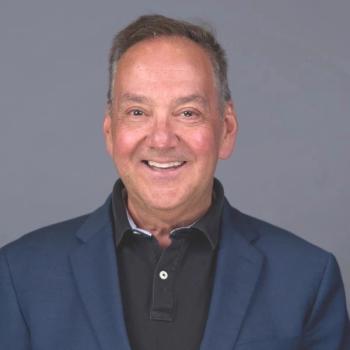
- Vol 34 No 1
- Volume 34
- Issue 1
Maintenance of Certification and Self-Mortification
Health care and medical education must march ever onward-although recently there has been a growing uprising among the ranks of experienced physicians.
COMMENTARY
Some persons are so inclined to mortify themselves that at every opportunity they have, they do so. What a beautiful practice this is, and how profitable!
-St. Alphonsus Rodriguez
“You . . . are ‘Teacher’?”
-Silas (The Da Vinci Code)
In The Da Vinci Code, the character Silas is a numerary of Opus Dei who regularly practices self-flagellation and mortification of the flesh. He endured a difficult childhood, and as an adult he is taken under the wing of an enigmatic figure called “The Teacher” who instructs him that the mission he must undertake is so profoundly important it is tantamount to saving the word of God.
Physicians in the US have endured arduous training that demanded profound sacrifices of time, relationships, and mental and physical well-being. These sacrifices were mostly made out of a sense of duty and answering a “calling” to the sacred work of relieving the suffering of fellow humans. In the past, the training and learning consisted primarily of long hours of close mentoring, observation, and memorization of accumulated medical knowledge. In the present, the long hours remain, but the accumulated medical knowledge has never been greater-and it continues to rapidly grow.
At the same time, mentoring and supervision have been curtailed because of changes in academic medicine that have severely de-emphasized the role of doctor as teacher. Which is ironic, given that the original Latin meaning of doctor (docere) is to teach. Regardless, over the past half century, technology and the shift in health care to a business model have ensured that “There is no longer any need for one individual to be on tap as the fountain of all wisdom when scholarship is
Of course, health care and medical education must march ever onward-although recently there has been a growing uprising among the ranks of experienced physicians. These hardy souls have continued to sally forth, with an ever increasing load on their backs of electronic health care record requirements, insurance mandates, burgeoning caseloads, and Medicaid requirements to name just a few. But the upheaval cannot be significantly attributed to any of these ever-increasing tasks that have little to do with why physicians chose their career paths in the first place. No, the cause for revolt has been what their own professional certification agencies have demanded of them.
Perhaps it was the cognitive dissonance of an organization claiming to have your best interests in mind while simultaneously making the practice of medicine more difficult. Whatever the reason, physicians have allowed themselves to become aware that they have been flogged for decades-and that the hand holding the whip is their own. US physicians are beginning to seriously question the need for a particular form of self-punishment-
Physicians have, in general, always tended to be long-suffering in terms of their enduring character. Indeed, the very path to becoming a physician selects for those who make delay of gratification a lifestyle. Besides an upbringing that emphasizes the development of neurotic traits, physicians use a variety of attitudes and psychological mantras to reinforce their motivation. For example, they may say to themselves: “All this suffering will make me a better physician in the long run.” They have been known to take this notion to the point of physical denial (eg, reduced sleep, working while sick, sacrificing vacation or family time) and even sharing stories about these exercises in self-denial.
Why the need to engage in such behavior? Perhaps physicians, predisposed to neurotic guilt, labor under the weight of their “life or death” responsibility and contend with feelings of moral transgression both consciously and unconsciously? Add to this the explosive increase in medical knowledge and accelerating pace of patient care when considering the physician’s moral burden.
We know that feelings of guilt can be assuaged by self-punishment.4 But, regrettably, the relief is all too brief and ultimately leads to suboptimal health. Currently, there is a startling amount of burnout amongphysicians. Whether it is a new phenomenon, or has been happening for a long time and we have only recently begun to consider it, is unclear. My guess is the former, given the tendency of more senior physicians (who are spared the MOC process) to enjoy practicing until a relatively ripe old age. In any event, burnout affects over half of practicing physicians and appears to be on the rise.5 Physician burnout can lead to many physical and mental health problems, and has been categorized into the following elements6:
• Emotional exhaustion
• Depersonalization
• Self-devaluation
These factors can result in substance misuse, depression, and even suicide if burnout goes unchecked. What about the younger physicians-particularly those in training? Can they revitalize the profession with their youthful optimism and energy? The opposite appears to be the case. A study of 126 residents and fellows and 336 medical students from 2013 to 2014 found that rates of major depression and generalized anxiety disorder were 5 and 8 times higher, respectively, than in age-matched controls.7 Unfortunately, training programs’ lack of emphasis on personal psychotherapy for residents will do little to offset these disturbing findings.8
Returning to the upheaval among physicians and the unique form of self-punishment instituted circa 1996 known as MOC, I am inclined to share some observations from the recent 47th Annual Meeting of the American Academy of Psychiatry and the Law that was held in Portland, Oregon. During the meeting, there was a notable debate, “MOC: Keep, Polish, or Abolish.”9 The debate was well attended, with approximately 90 people who were able to respond to questions via an electronic audience response system. Panelists who debated in favor of maintaining MOC argued that MOC reinforces physician professionalism, medical knowledge, and improved patient care. Panelists who debated in favor of abolishing MOC argued that none of the foregoing was true. The latter noted the lack of evidence that current MOC methods improve either relevant medical knowledge or professionalism. Furthermore, they stressed that patient care was negatively affected by physicians who have to take time away from work to study for the wide-ranging, superfluous MOC questions. But the more concerning points made by the anti-MOC panelists focused on financial issues. In addition to the increasing cost burden to physicians, they suggested that MOC was primarily a
According to anti-MOC panelists, projected financial estimates for the American Board of Psychology and Neurology in 2016 revealed that it was a $6.1- to $6.3-million industry that earns its president well over $900,000 per year. If such figures are anywhere near accurate, a very urgent and careful consideration of the future of MOC seems warranted. The audience thought so too. Although the results were far from “scientific,” 93% of respondents were in favor of abolishing the 10-year MOC process in favor of “lifetime board certification with a requirement to stay current by completing CME activities.”
Physicians are, on the main, a moral and conscientious lot. They generally accept heavy responsibility, punish themselves for perceived failings, and are not likely to need more implements of self-mortification. Let us pray that physicians will be energized by their original calling and let the flagellation whip fall from their hands. Otherwise, we will have marched straight up to the verge of our own extinction, and there will be no shortage of “physician extenders” (who have no such MOC requirements) to take our place. Let us return to patient care, teaching, and more effective, focused ways of life-long learning. And let us decide this without delay-lest we find ourselves on our collective knees, like Silas, whispering: “Soy un fantasma . . .” (I am a ghost).
Also see:
This article was originally posted on 12/8/2016 and has since been updated.
MORE ABOUT James L. Knoll, IV, MD
I greatly enjoy writing and just about everything that has to do with the written word. I have enjoyed exploring the genius of Philip K. Dick’s and George Orwell’s writing with my son Casey. I have equally enjoyed the beautiful creativity of arts and crafts with my daughter Carie. After a lifelong study of the martial arts, I was awarded a black belt in the art of Brazilian jiu jitsu, which I practice regularly to clear my mind and keep my ego in check. Sometimes I am unsuccessful with the latter, yet there is always a lesson for me.
I have always been interested in psychohistory in the Liftonian sense. As a boy of about 10, I happened upon a TIME magazine cover displaying a large vat of Kool-Aid surrounded by some 900 dead bodies. The image made such an impression that when my elementary school teacher gave our class the assignment of writing a short story, I wrote a piece from the perspective of a Jonestown member who managed to escape by feigning death. I can only speculate on my teacher’s reaction to my work.
Decades later, I interviewed and lectured with a few of the only living survivors of the Jonestown tragedy. Similarly, after learning about the Unabomber case from my mentor, Phillip Resnick, MD, I eventually met and became friends with David Kaczynski, brother of Ted Kaczynski. David and I shared an interest in Buddhist psychology, and over the years weco-facilitated trauma and healing seminars. I was grateful when he asked me to write theafterword for his memoir, Every Last Tie: The Story of the Unabomber and His Family.
Disclosures:
Dr. Knoll is Editor in Chief Emeritus of Psychiatric Times. He is Professor of Psychiatry, SUNY Upstate Medical Center, Syracuse, NY, where he is Director of Forensic Psychiatry, and Director of the Forensic Psychiatry Fellowship at Central New York Psychiatric Center. Dr. Cotoman is in Private Practice and a Forensic Psychiatrist, South Charlotte Psychiatry, Charlotte, NC. Dr. Knoll reports no conflicts of interest concerning the subject matter of this article.
References:
References
1. Parker G. The passing of ‘the Prof.’ Br J Psychiatry. 2016;208:106-107.
2. Sorrel A. MOC revolution. Tex Med. 2016;112:26-32.
3. Cook D, Blachman M, West C, Wittich C. Physician attitudes about maintenance of certification: a cross-specialty national survey. Mayo Clin Proc. 2016;91:1336-1345.
4. Bastian B, Jetten J, Fasoli F. Cleansing the soul by hurting the flesh: the guilt-reducing effect of pain. Psychol Sci. 2011;22:334-335.
5. Epstein R, Privitera M. Doing something about physician burnout. Lancet. 2016;388:2216-2217.
6. Sigsbee B, Bernat J. Physician burnout: a neurologic crisis. Neurology. 2014;83:2302-2306.
7. Mousa OY, Dhamoon MS, Lander S, Dhamoon AS. The MD blues: under-recognized depression and anxiety in medical trainees. PLoS ONE. 2016;11:e0156554.
8. Habl S, Mintz D, Bailey A. The role of personal therapy in psychiatric residency training: a survey of psychiatry training directors. Acad Psychiatry. 2010;34:21-26.
9. Holmberg T, Detrana C, Cotoman D, et al. MOC: Keep, Polish or Abolish. Presented at the 47th Annual Meeting of the American Academy of Psychiatry and the Law; October 28, 2016; Portland, OR.
10. Eichenwald K. The ugly civil war in American medicine. Newsweek. March 10, 2015.
Articles in this issue
about 9 years ago
Introduction: Cognition, Rarely Discussedabout 9 years ago
Lithium Therapy, Bipolar Disorder- and Neurocognitionabout 9 years ago
To Google or Not to Google? Is “Patient-Targeted” Googling Ethical?about 9 years ago
Opioid Analgesics: The Myths-and the Factsabout 9 years ago
Eight Enemies of Good Writing for the Lay Readerabout 9 years ago
A Coin Flipabout 9 years ago
Committed: The Battle Over Involuntary Psychiatric Careabout 9 years ago
An Update on MelancholiaNewsletter
Receive trusted psychiatric news, expert analysis, and clinical insights — subscribe today to support your practice and your patients.







